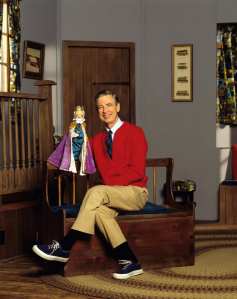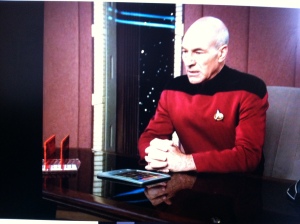
By many definitions, I am now considered a “senior citizen.” I remember when I started this blog back in September 2014, I thought it might be interesting at some point to invite some folks that I knew who were a few years older than me, and perhaps a bit wiser, I suspected, to write some guest columns for SOUNDINGSJOHNBARKER (https://soundingsjohnbarker.wordpress.com/) sharing their thoughts on aging gracefully, aging well. I never quite got around to extending that invitation almost eight years ago, but now that I have reached that milestone, I do so here. If you want to contribute some thoughts on the subject of aging gracefully, aging well, this blog is at your service.
My own thoughts on aging gracefully, aging well, might be summarized thusly: Be mellow, be grateful.
First, some words on mellowing with age: As a young reporter, and even much later as an editor, I several times came very close to quitting newspaper jobs as a matter of principle over some story, editorial or column dispute with my bosses. While I still think there are times when that is the only appropriate and ethical thing to do, I have come to realize they are probably few and far between, and ego and arrogance were bigger factors driving my soapbox fury than I realized at the time. As recently as Sept. 11, 2014, I wrote: “In the old days, publishers and newspaper owners would from time to time ‘kill’ a writer’s column before publication. Despite their ballyhoo and blather about freedom of the press, publishers and newspaper proprietors are almost universally in my long experience with them a timid lot, if not outright moral cowards at times, always afraid of offending someone. Freedom of the press is the last thing they want when it comes to staff (https://soundingsjohnbarker.wordpress.com/2014/09/11/retroactively-spiked-the-post-publication-killing-of-msgr-charles-popes-blog-post-on-new-york-citys-st-patricks-day-parade/).”
While I haven’t revised my view on what I wrote eight years ago, I tend, however, to recall as well now a conversation I had with my parish priest, Father Eugene Whyte, about such a dispute that I was having with my general manager and publisher several years earlier. “John, I have a bishop, I have a superior of my order. I have taken a vow of obedience, and do or don’t do things I might otherwise do.” He also wondered if perhaps my pride was blinding me? While I hadn’t taken a vow of obedience, like a religious, it is true I had a fiduciary duty to my employer(s), that I on more than one occasion served it by making an end run around them because I knew better and knew it. Learning to pick my fights, and realizing even then I might lose some, was a very long process indeed for me. Winning is not always everything. As the late West Wing actor John Spencer, playing Leo McGarry, White House chief of staff, exhorted staff in an April 26, 2000 episode: “And we’re gonna lose some of these battles. And we might even lose the White House. But we’re not going to be threatened by issues: we’re going to put ’em front and center. We’re gonna raise the level of public debate in this country, and let that be our legacy.”
When I worked as a news editor at Northern News Services in Yellowknife some 20 years ago, an inside joke in the newsroom was that people could “pass away” in the city newspaper, the Yellowknifer, edited by my talented colleague, Janet Smellie, who sat right beside me on the desk, but in my paper, the western edition of News/North, they always died or were “dead at.” While it takes up more headline space in a hard copy print edition, in a world of mainly online journalism, where space is less of a constraint, I can now occasionally live with people “passing away” in a headline or the body of a story. While “dead at” has remarkable concision, I’d be hard pressed to argue that it doesn’t often have a harsh sound at the same time, especially to surviving family and friends. While I haven’t had to balance those type of newspaper considerations since 2014, I do try in my public writing these days to harken back to what St. Francis de Sales, the 16th and 17th century priest, Bishop of Geneva, and Doctor of the Church, who became the patron saint of journalists, counselled on using language with gentleness and charity. Anyone who has read some of my Facebook posts will have no doubt I am something of a work-in-progress on that score.
And while I used to tell new reporters I’d fire them if they ever referred to cocaine as a “narcotic” in a news story they handed in, no matter what the police or other official sources said or described it as, I’d probably be less inclined to wield that stick today. Perhaps. As James Boswell wrote in 1791 in Samuel Johnson, The Life of Samuel Johnson LL.D. Vol 3, “Depend upon it, sir, when a man knows he is to be hanged in a fortnight, it concentrates his mind wonderfully.”
My gratitude has increased with age. Reality can be sobering. I have two first cousins who have lost their husbands so far in 2022. They passed away. In the Knights of Columbus, our fraternal Latin motto is “tempus fugit, memento mori,” which translates in English to “time flies, remember death.” If I’m tempted to think counting a cash drawer at the hotel (regularly) or library (occasionally) is a tedious task, I usually catch myself and think something to the effect of thank God that I am still blessed with the cognitive skills (aided by a pocket calculator) to count the cash. The late Vietnamese Buddhist monk Thích Nhất Hạnh, who died in January at the age of 95, had many useful things to say over many decades of teaching on mindfulness and seemingly ordinary and mundane tasks.
Everyone falls short. Watching the Apostles follow Jesus in Dallas Jenkins’ brilliant series The Chosen, reminds me of that constantly. The struggle is real. This week, it serves to remind me also that it might be time to revisit Matthew’s New Testament retelling of “The Sermon on the Mount” and “The Beatitudes.”
3 “Blessed are the poor in spirit,
for theirs is the kingdom of heaven.
4 Blessed are those who mourn,
for they will be comforted.
5 Blessed are the meek,
for they will inherit the earth.
6 Blessed are those who hunger and thirst for righteousness,
for they will be filled.
7 Blessed are the merciful,
for they will be shown mercy.
8 Blessed are the pure in heart,
for they will see God.
9 Blessed are the peacemakers,
for they will be called children of God.
10 Blessed are those who are persecuted because of righteousness,
for theirs is the kingdom of heaven.
Many, many years ago now, when I was a fourth-year student at Trent University, I was taking a politics and women’s studies gender theory course with Elaine Stavro, who I still consider to be one of the most brilliant professors I ever had the privilege to study with. It was a glorious spring day and we were strolling across the Faryon Bridge on the Nassau Campus, which crosses the Otonabee River, joining the east and west banks. Elaine was good-naturedly teasing me a bit about my Catholicism and sin and guilt. We bantered a bit, and then Elaine turned serious, looked at me and said, “John, the difference that matters is not who believes and who does not believe, but rather who cares and who doesn’t care.”
“Character, courage and redemption. These manifestations of virtue are not the moral preserve of any institution, including the Church. They are manifested by the human heart. And nowhere is that manifestation repeatedly better illustrated than by the influence of Gene Rodenberry in popular culture in Star Trek and Star Trek: The Next Generation, which was about half-way through its seven-season run when Rodenberry, the Southern Baptist-turned humanist, died in 1991,” I wrote Sept. 24, 2018 in a blog past called, “Church of Star Trek: The Next Generation and the moral arc of the universe (https://soundingsjohnbarker.wordpress.com/2018/09/24/church-of-star-trek-the-next-generation-and-the-moral-arc-of-the-universe/)
A perfect illustration of this is “Lower Decks,” the 167th episode of the series and the 15th episode of the seventh and final season, which originally aired on Feb. 7, 1994.
Ensign Sito Jaxa is a Bajoran Starfleet officer serving aboard the USS Enterprise. Two years earlier while in Starfleet Academy in 2368, she was a member of Nova Squadron, along with Wesley Crusher. Under the direction of Cadet Nicholas Locarno, Nova Squadron attempted the dangerous Kolvoord Starburst maneuver during a flight exercise – an action that resulted in a collision and death of fellow cadet Joshua Albert. Jaxa and her fellow cadets lied about their flying of the illegal maneuver to a board of inquiry.
Character, courage and redemption.
Now serving on the USS Enterprise, after being handpicked by Capt. Jean-Luc Picard, Jaxa was to assist a Cardassian defector, Joret Dal, return to Cardassia Prime by posing as a Bajoran prisoner captured as part of a bounty hunt, which would allow Dal to cross the border without difficulty. She would then be returned to Federation space in an escape pod, after Dal reached Cardassian territory.
Jaxa freely volunteered for the mission, and was surgically altered to appear as if Dal had abused her in his custody Dal was shocked that she was so young, but was grateful that she risked her life in order for the mission to succeed. The Enterprise-D waited more than 32 hours for her to return before Picard orders a probe to be launched into Cardassian space, despite being warned that doing so could be considered a treaty violation, but the probe only detected debris 200,000 kilometres inside Cardassian space consistent with that of a destroyed escape pod. Eventually, a Cardassian communique was intercepted indicating that the escape pod was detected and destroyed after escaping.
And then with remarkable simplicity and brevity, these five sentences from Picard in a ship-wide address from the captain’s ready room off the bridge:
“To all Starfleet personnel, this is the Captain. It is my sad duty to inform you that a member of the crew, Ensign Sito Jaxa, has been lost in the line of duty. She was the finest example of a Starfleet officer, and a young woman of remarkable courage and strength of character. Her loss will be deeply felt by all who knew her. Picard out (https://www.youtube.com/watch?v=40XUt1HU5H8).”
Gratitude is defined as, “Readiness to show appreciation for and to return kindness; thankfulness.”
Similar to appreciation, gratitude occurs when we affirm the goodness we’ve received in life, says Robert Emmons, a leading expert on gratitude, in his Greater Good essay, “Why Gratitude is Good.” To better understand gratitude, you might also well look at 12-Step programs like Alcoholics Anonymous (AA) or Narcotics Anonymous (NA). Gratitude is a major component of 12-Step programs like Alcoholics Anonymous (AA) or Narcotics Anonymous (NA). The 12th step states:
“Having had a spiritual awakening as a result of these steps, we tried to carry this message to [alcoholics/addicts], and to practice these principles in all our affairs.”
The entire 12-step movement, which now totals more than 100 self-help fellowships, can be traced back to two men originally from Vermont, Bill Wilson, a failed New York City stockbroker, and Dr. Bob Smith, an Akron, Ohio physician.
The birth of Alcoholics Anonymous is dated from their meeting and Smith’s last bottle of beer on June 10, 1935. They would be affectionately known ever after as Bill W. and Dr. Bob, the co-founders of AA.
Wilson had been influenced by Ebby Thacher – or Ebby T. in the preferred anonymous parlance of 12-step programs – a friend from boarding school, who paid Wilson a visit in November 1934, while Thacher was a member of the Oxford Group, popular on college campuses in the 1920s, and founded by Frank Buchman, a Lutheran minister.
The first edition of Alcoholics Anonymous, known almost universally by its informal title as simply the Big Book, was published on April 10, 1939. There were 4,730 books printed, with red cloth binding, wide columns, thick paper (which was why it was called the Big Book in the first place), and a red, yellow, black and white dust jacket, which came to be known as the “circus cover.”
Alcoholics Anonymous, or AA as it is also known, has long had an impact on the larger culture and its perhaps most famous slogan, “one day at a time,” long ago entered the public vocabulary as a sentiment to remind people feeling overwhelmed by events to pause for a moment, step back and see their lives in the present moment, not the past or future, which has made the concept of the current 24 hours – and in a crisis sometimes even smaller units of time – a cornerstone of AA.
Wilson’s spiritual advisor and “sponsor” for almost 20 years from November 1940 until his death in April 1960 was a Jesuit priest, Father Ed Dowling, from St. Louis.
Dowling was born in St. Louis on Sept. 1, 1898. He attended the Baden Public and the Holy Name Parochial School and went on to St. Louis University High School. In 1918, he served as a private in the First World War. In 1919, he began working as a reporter on the St. Louis Globe-Democrat. Later that same year, Dowling entered the Order at Florissant and followed the regular course subsequently for philosophy at St. Louis University.
Dowling was a member of the American Newspaper Guild and served as a delegate for the St. Louis local at Guild conventions in Toronto and San Francisco. He was a friend of Heywood Broun, the noted New York columnist, Guild founder and legendary union activist, and helped, along with then Father Fulton J. Sheen, to convert Broun from agnosticism to Catholicism seven months before his death in 1939.
When he decided to become a priest, Dowling reportedly told his newspaper colleagues he was entering the seminary – the very next morning – at an all-night café frequented by Globe-Democrat reporters.
While it’s impossible to overstate the influence of Alcoholics Anonymous and related 12-step programs on addictions treatment and recovery, it’s not the only model in a reality where relapse is the norm.
Two steps forward, one step backwards and perhaps a step sideways is the reality of addiction.
Bill Wilson himself was a surprisingly freethinker on a lot of this, refusing often to get bogged down in the semantics. AA worked for him, so he worked his program with a live-and-let live attitude.
You can also follow me on Twitter at: https://twitter.com/jwbarker22






